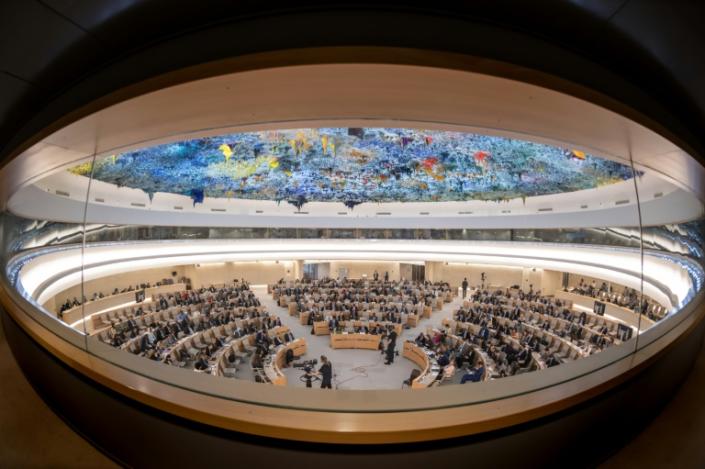
Iran continues to impose harsh penalties on those suspected of taking part in mass protests, including “chilling” executions, a United Nations fact-finding mission said on Wednesday.
Iran has been rocked by protests sparked by the September 16 death of Mahsa Amini, a 22-year-old Iranian Kurd who was arrested for allegedly violating the strict dress rule for women based on Islamic Sharia law.
At a special session in November, the UN Human Rights Council voted to create a high-level inquiry into the deadly crackdown.
Reporting to the council, Sara Hossain, chair of the independent international fact-finding mission, said that 10 months later, the Amini family’s “right to truth and justice is still not being respected”.
“The lack of transparency around the investigations into his death is further highlighted by the arrest and continued detention of the two female journalists, Nilufar Hamedi and Elahe Mohammadi, who first reported on the event,” said she added.
Iran said 22,000 people had been pardoned in connection with the protests, which “suggests that many more have been arrested or charged,” Hossain said.
No official data exists on the nature of the allegations against them, or who has been convicted, detained or charged in connection with the protests, she said.
Hossain said pardoned protesters would have been forced to express remorse – “effectively admit their guilt” by signing written pledges not to commit “similar crimes” in the future.
“Strong penalties continue to be meted out to those involved in the protests, including for exercising rights protected under international human rights law,” she said.
“Frighteningly, seven men have already been executed following rushed proceedings marred by serious allegations of fair trial violations, including confessions extracted under torture.”
The fact-finding mission called on Tehran to end the executions of those sentenced to death in connection with the protests and urged Iran to release all those detained for peaceful assembly and reporting on the protests.
Hossain also urged Tehran to cooperate with the investigation.
– Iran accuses the West –
In response, Kazem Gharib Abadi, secretary general of Iran’s High Council for Human Rights, said Western countries had fomented the protests and “terrorists have entered the scene”.
“More than 75 law enforcement officers and people were killed by the rioters, and more than 7,000 law enforcement officers were also injured,” he said.
“Iran’s policy in the face of the riots has been to use the minimum legal powers,” he insisted, while calling the establishment of the UN investigation “politically motivated and unacceptable”. .
He claimed that one social media channel “learned how to make bombs”, and another “created more than 50,000 fake accounts in Persian to act against Iran”, while foreign TV channels “anti -Iranians” “dedicated their capacities to notorious terrorists for interviews”. .
He also pointed to recent riots against police violence in France, which he said “reflect excessive use of force against peaceful protesters, widespread arbitrary arrests and restrictions on the internet and social media.”
“It would be prudent for the Human Rights Council to convene a special session to examine the situation in France,” he said.
rjm/js
